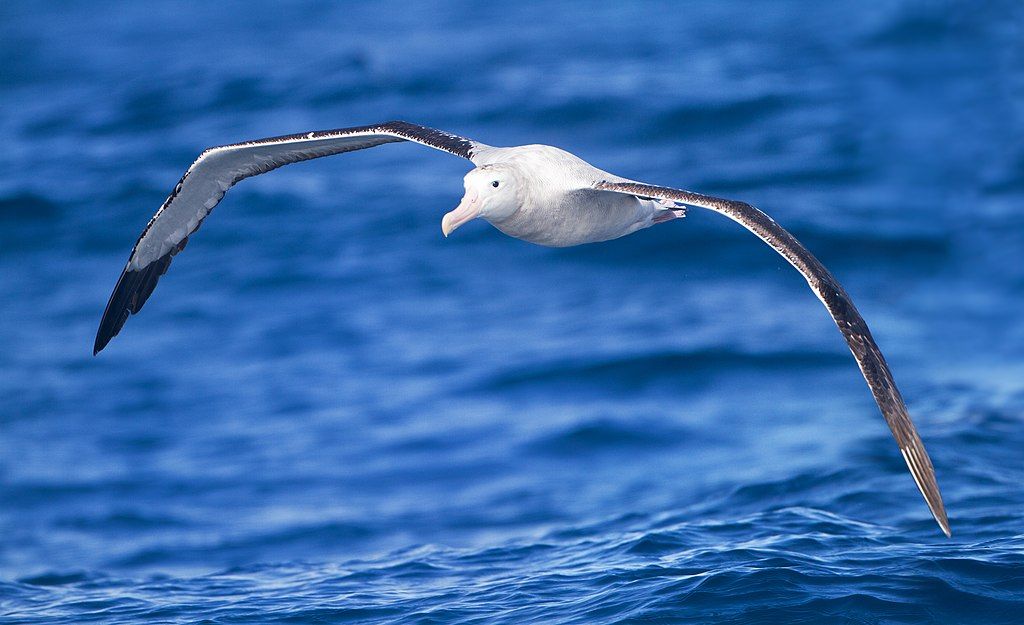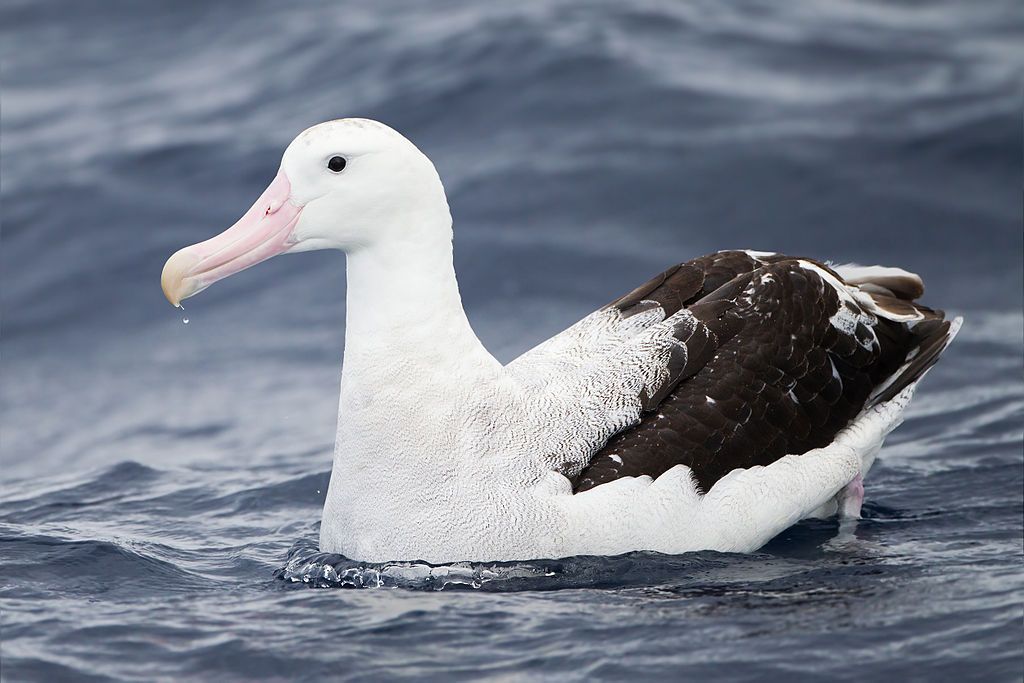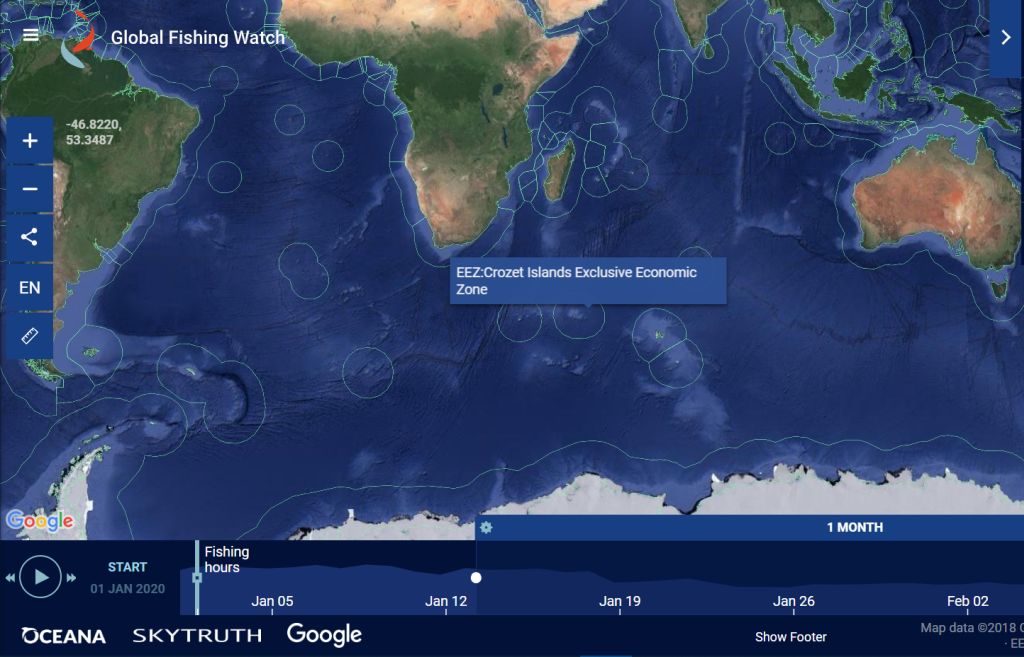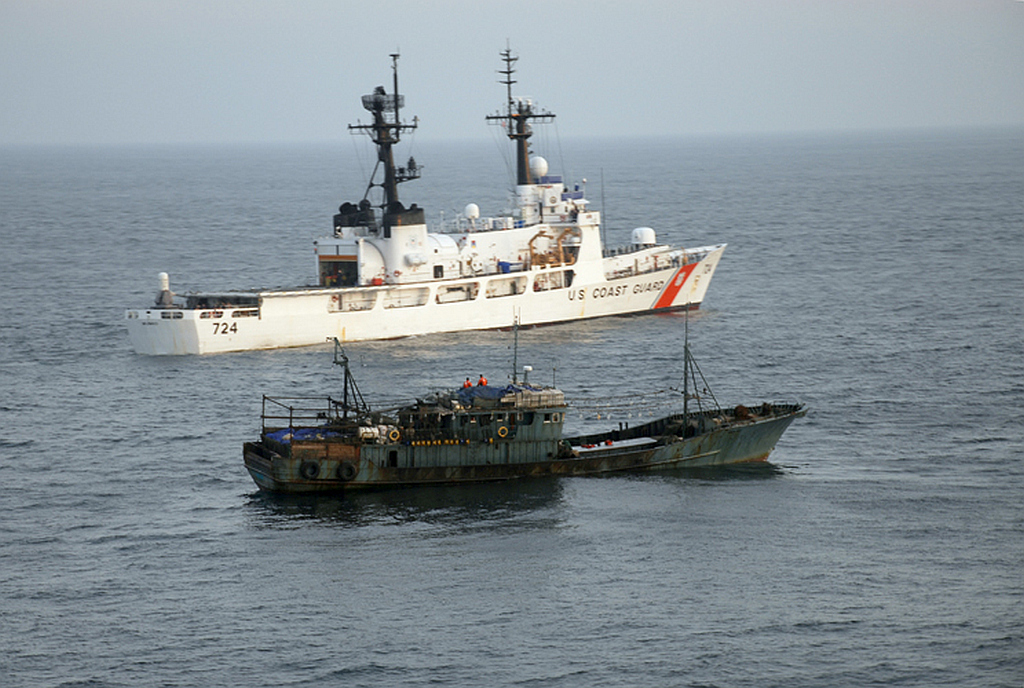
As human population soars and fish populations plummet illegal fishing has ramped up in the world’s oceans. With 50% of the world’s fish population now gone, countries protect fish within their 200-mile Exclusive Economic Zones (EEZ) but dishonest fishing vessels sneak in to capture endangered species and overfish what’s left.
Catching the perpetrators, or even knowing they’re out there, has been quite difficult despite the ability to track them by satellite. That’s because dishonest vessels turn off their Automatic Identification System (AIS) satellite transponders so they can’t be seen. The boats travel safely without AIS; they use radar to avoid collisions and find fish.
In 2017 Henri Weimerskirch and colleagues at Centre of Biological Studies Chizé launched an innovative study to uncover the extent of illegal fishing. They equipped wandering albatrosses (Diomedea exulans) with radar detectors that transmit location data to satellites. The research team then matches albatross radar sightings to AIS satellite sightings. If there’s a radar ping but no AIS, the boat is operating illegally.

The research team expanded the study in 2019 by fitting 169 albatrosses from Crozet and two other islands with radar detectors (map below). From December 2018 to June 2019 the albatrosses encountered 353 ships, 37% of which had turned off their AIS.

After a 6-month study with the large seabirds, the researchers estimate that more than one-third of vessels in the southern Indian Ocean are sailing undercover, confirming concerns about illegal or unreported fishing.
— Seabird cops spy on sneaky fishing vessels
Armed with this new data, enforcement can now focus on the hotspots of illegal activity. Ideally it will lead to more arrests like the one pictured below in the North Pacific in 2008.

Read more about the albatross project in Science Magazine: Seabird cops spy on sneaky fishing vessels.
See the full study at PNAS: Ocean sentinel albatrosses locate illegal vessels.
(photos from Wikimedia Commons and Flickr, map screenshot from Global Fishing Watch; click on the captions to see the originals)
So cool. Thanks for the post Kate.